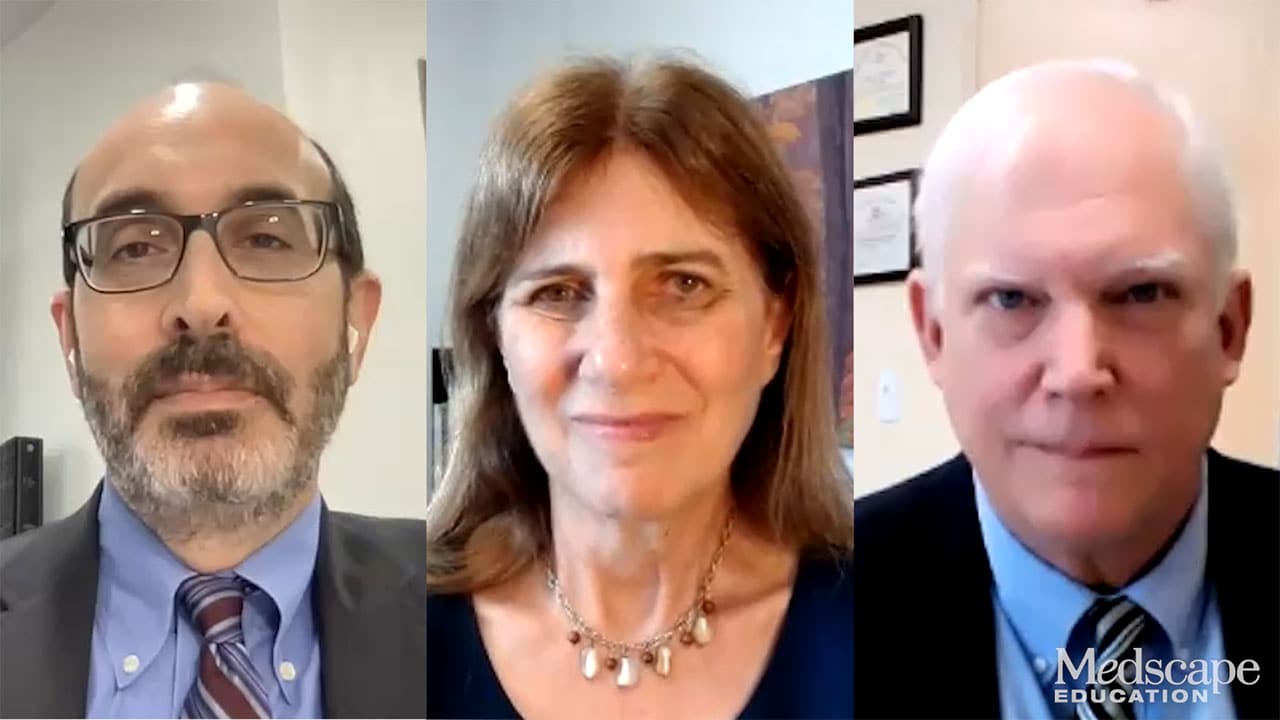COPENHAGEN, Denmark — Losing a spouse does not predict earlier progression to dementia in cognitively normal individuals and is actually associated with a slower rate of progression to dementia in patients with mild cognitive impairment (MCI), new research shows.

Dr. Bryan Woodruff
Investigators at the Mayo Clinic in Scottsdale, Arizona, presented these "unexpected" findings from 2 studies here at the Alzheimer's Association International Conference (AAIC) 2014.
"In the first study, we looked at individuals that were cognitively normal at study entry and followed them over time. Contrary to our hypothesis, we found that there was no difference in time to dementia between those who lost a spouse and those who did not, which was surprising to us," lead investigator Bryan K. Woodruff, MD, assistant professor of neurology at the Mayo Clinic in Scottsdale, told Medscape Medical News.
The more unexpected finding, added Dr. Woodruff, came from the second study, which looked at the cohort of patients with MCI.
"These individuals started out with a cognitive deficit, and we expected that spousal loss would accelerate the time to dementia conversion. But in fact, we found the exact opposite ― individuals in the second study who were widowed had a slower rate of progression to dementia compared to those who were not widowed," he said.
Selection Bias?
Although there is a significant body of evidence showing that widowhood has a negative impact on health outcomes in other diseases, including cancer and cardiovascular disease, there has been little or no research looking at its effect on cognitive decline, said Dr. Woodruff.
To examine this issue, the investigators analyzed data from the National Alzheimer's Coordinating Center (NACC). The NACC database pools data from 29 US Alzheimer's disease centers funded by the National Institute on Aging.
In the first study, investigators examined the potential impact of widowhood on incident dementia in 4446 individuals who were cognitively normal at study outset and had undergone uniform dataset visits conducted between September 2005 and September 2013. These patients were followed for a median of 3.8 years. The study's primary outcome was age at the time of dementia diagnosis.
During the study, 398 participants were widowed, and 4048 remained married.
Results showed that the median age at dementia onset in the widowed group was not younger than in the married group (96 vs 96 years; hazard ratio [HR], 0.92; 95% confidence interval [CI], 0.66 - 1.29; P = .64). Adjustment for sex, presence of the apolipoprotein-4 allele, or age at first visit did not increase the HR for loss of a spouse, the investigators report.
"There didn't seem to be an impact one way or the other. Both groups ended up getting dementia at roughly the same age, so there was no detectable 'widowhood' effect, even though we had pretty decent-size numbers," said Dr. Woodruff.
That said, these individuals, who were cognitively normal at the beginning of the study, did not develop dementia until a very advanced age ― 96 years for both groups ― so it is possible that there is some sort of selection bias at play, Dr. Woodruff added.
Dramatic Difference
Analyses of the second study were based on data from 2457 individuals who were also participants in the NACC database and who were married and had MCI at study entry. During the study period, 134 became widowed, and 2457 remained married.
During a mean follow-up period of 3.1 years, 1078 patients progressed from MCI to dementia. The median age at dementia onset in the widowed group was older than in the married group (92 vs 83 years; HR, 0.36; 95% CI, 0.26 - 0.48; P < .001).
Adjusted analyses revealed not only that the loss of a spouse did not increase the risk for progression to dementia but also that individuals who were widowed developed dementia much later.
"So there was a dramatic difference, but not in the direction we were expecting. In fact, we found the exact opposite of what we expected," said Dr. Woodruff.
Although this finding was a bit of a head scratcher, Dr. Woodruff speculated that the delayed time to dementia in the widowed group of MCI patients may be a reflection of more robust support from family and friends of widowed individuals with memory impairment.
"Even though these are still people that are struggling with 'mild' memory impairment, if suddenly they lose their spouse, we think that the caregiver network for that individual ― adult children or siblings ― realize this person has memory problems and needs help.
"So we think people are mobilizing the troops so that the network of care [for the surviving spouse with MCI] is suddenly more robust than when the patient's spouse was alive."
The potential take-home message from this research, said Dr. Woodruff, may be that individuals with memory impairment need more support at an earlier stage ― whether they are married or single.
"Clinicians probably need to be promoting and facilitating more services and greater support for all individuals out there with a cognitive problem. Whether or not they happen to have a healthy, vibrant spouse that can help them out, they probably still need additional support," Dr. Woodruff said.
"When people come in to see us and we diagnose them with a cognitive problem, the unfortunate reality of it is if they have a mild problem and they have a caring, doting spouse, we think, well, they are probably doing okay. This study challenges that notion," he added.
Dr. Woodruff said his team hopes to replicate these findings in a longitudinal community-based study.
Plausible Hypothesis
Commenting on the research for Medscape Medical News, Heather Snyder, MD, PhD, director of medical and scientific operations for the Alzheimer's Association, said that Dr. Woodruff's suggestion that delayed progression to dementia in the MCI group may be due to greater access to and utilization of support services is a plausible hypothesis.

Dr. Heather Snyder
"This is one of the first studies looking at the impact of widowhood and what that might mean in terms of dementia progression, and while it may be too early in the research to determine the exact reason for these particular findings, there is some evidence that suggests accessing resources early on ― either before or soon after diagnosis ― results in better outcomes for patients and caregivers in terms of overall health and quality of life," said Dr. Snyder.
She added that the Alzheimer's Association advocates early access to assistive services for patients with Alzheimer's disease and their families because "we believe that access to services at the earliest point is the best thing for everyone concerned."
Dr. Woodruff and Dr. Snyder report no relevant financial relationships.
Alzheimer's Association International Conference (AAIC) 2014. Abstract P2-380 and P2-379. Presented July 14, 2014.
Medscape Medical News © 2014 WebMD, LLC
Send comments and news tips to news@medscape.net.
Cite this: Unexpected Effect of Widowhood on Dementia Progression - Medscape - Jul 23, 2014.











Comments